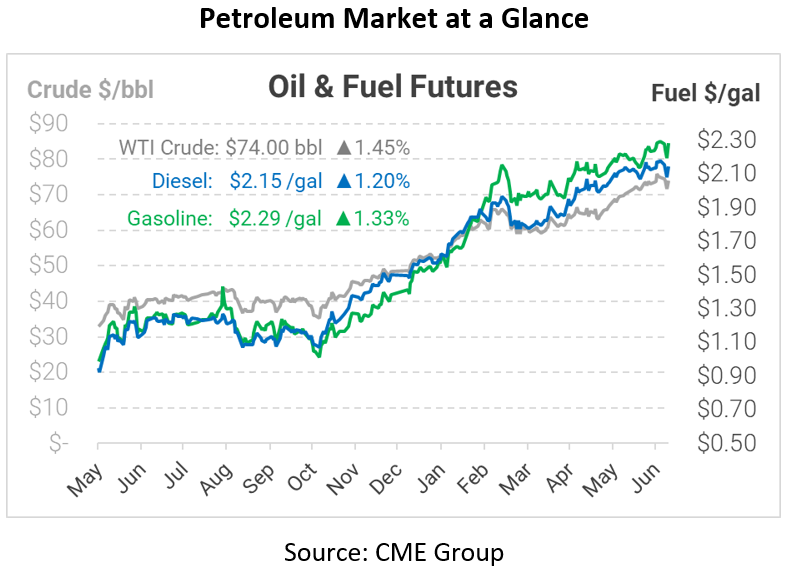
2021 Hurricane Season Projections – 4 Steps to Prepare
Every year, hurricane season presents challenges for the downstream fuel industry, shutting down offshore production and often disrupting refinery operations and fuel deliveries. Like last year, 2021 is expected to bring an above-average number of hurricanes and major storms. Are you prepared? Today we’ll explore forecasts for the season, why this year could be more challenging than most, and how fuel buyers can be confident heading into peak hurricane season.
This week, Colorado State University increased their projections for the 2021 hurricane season. The group expects 20 named storms this year, including the four seen already this year. Nine storms could reach hurricane status, approximately two more than average. CSU forecasts four major storms, which would bring wind speeds over 110 mph.
Last year brought an above-average season, but dampened demand caused by the pandemic made the operational impacts minimal. Last year’s CSU pre-season forecast called for just 16 named storms and 8 hurricanes. In reality, the US experienced a record-breaking 30 named storms, including 14 hurricanes. Despite the record season, gasoline and diesel inventories were abundant, and fuel haulers were eager to pick up the extra deliveries.
This year, however, will be more challenging. Inventories are near/below their five-year average, and demand is closing in on pre-pandemic levels. Carrier capacity constraints will also present challenges; the NTTC expects that 25% of fuel trucks will be parked this summer due to the driver shortage. Fuel markets, especially in the southeast, are already running with tight capacity – a hurricane that takes supply offline for several days could have much more severe consequences this year.
If this season is as busy as 2020’s hurricane season, expect severe fuel supply and freight constraints, causing supply shortages and higher prices.
Preparing for Hurricane Season
- Prepare Your Risk Management Program – Fleets must prepare for a wide variety of possible risks, including fuel supply disruption. If you have not explored the different fueling risks that need managing, check out this whitepaper on 5 Fuel Risks You Must Manage.
- Ensure Sites Are Prepped for Storms – Make sure each site in a flood-prone area has a water-tight seal cap for its fuel tank. Water contamination can lead to expensive remediation costs, so keeping storm water out of your tank is an important preventative step.
- Communicate Any Demand Changes – If you plan to park trucks due to the upcoming storm, it’s important that your fuel supplier knows that so they don’t deliver a load you don’t need, resulting in a retain. On the other hand, if you expect demand to increase because your company must respond to pre- or post-storm needs, communicating that can help prevent a runout. The key here is frequent and transparent communication with your fuel supplier.
- Consider an emergency fuel contract – If your company does not have an existing supply contract, it might be a good idea to establish an emergency fuel program, in the form of dedicated trucking assets on retainer. This year, more than usual, it will be difficult to get fuel before and after a storm if you do not have a supply contract in place.
This article is part of Daily Market News & Insights
Tagged: Colorado state, crude, Hurricane season, projections
MARKET CONDITION REPORT - DISCLAIMER
The information contained herein is derived from sources believed to be reliable; however, this information is not guaranteed as to its accuracy or completeness. Furthermore, no responsibility is assumed for use of this material and no express or implied warranties or guarantees are made. This material and any view or comment expressed herein are provided for informational purposes only and should not be construed in any way as an inducement or recommendation to buy or sell products, commodity futures or options contracts.









